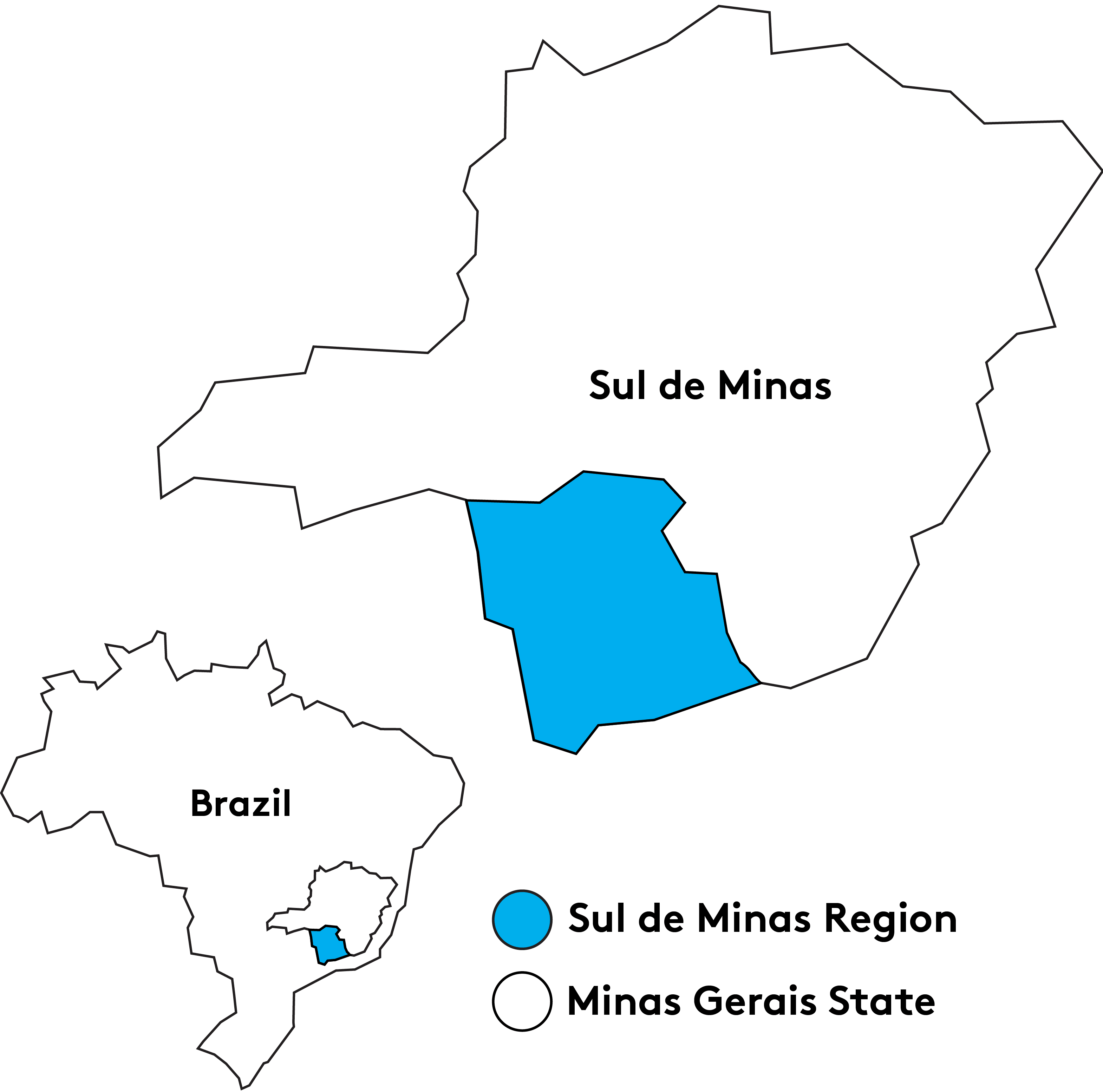Fazenda Catiguá began its activities in 1966 when the owner, José Alberto de Carvalho, in partnership with his two brothers, purchased the farm. José Alberto married in the same year and later, with the help of his mother, bought out his brothers’ shares. In 1974, following the advice of a friend, he decided to plant coffee. That was the same year that electricity arrived to the farm and his only daughter was born.
The challenges in those early days were finding manual labor and the overall lack of technology to assist with farm management. Currently, the farm has machinery, a cement drying patio, and most importantly the support of José Alberto’s daughter, who became a Q-Grader and works with her father to add value to Fazenda Catiguá’s coffee through improvements in quality.
60 of the farm’s 700 hectares are planted with coffee. Fazenda Catiguá is located in the city of Cambuquira, in the Mantiqueira de Minas coffee region of the south of Minas Gerais state. José Alberto’s greatest satisfaction is to see coffee cultivation rooted in the family being passed between generations, transmitting dignity and knowledge to his grandchildren who accompany the steps of father and daughter.










